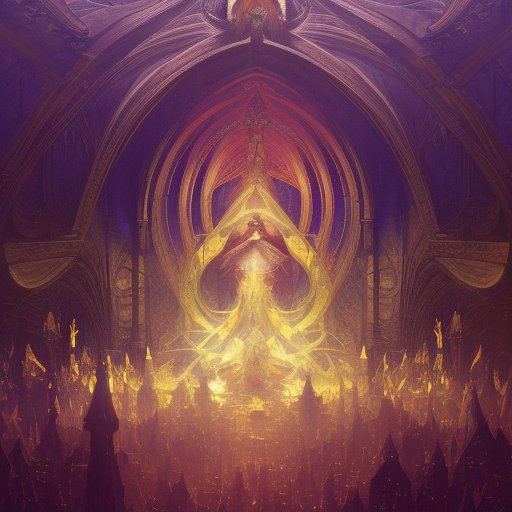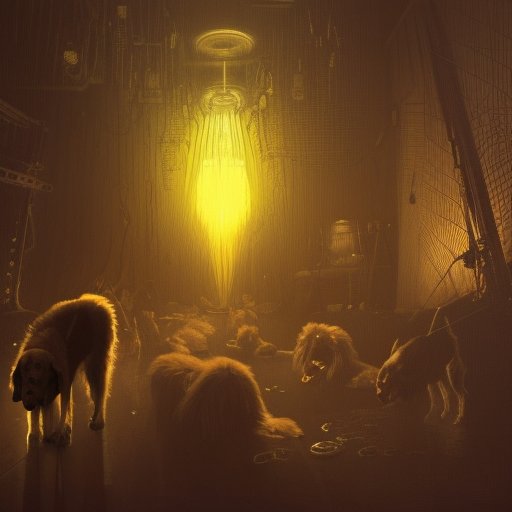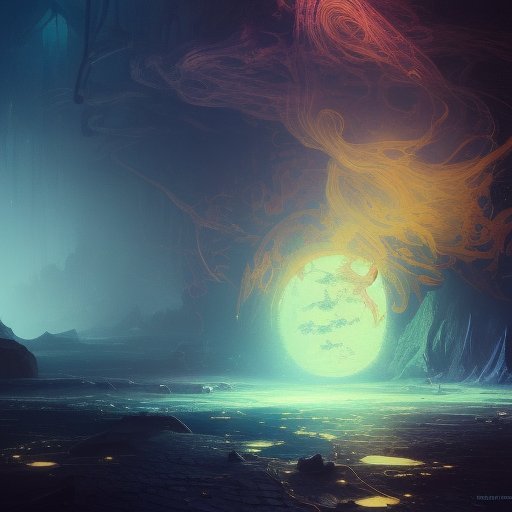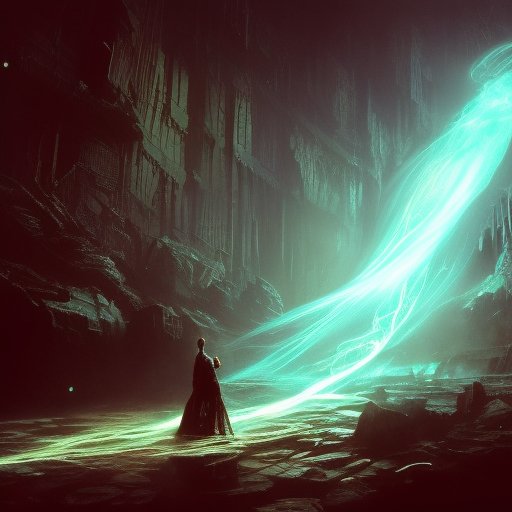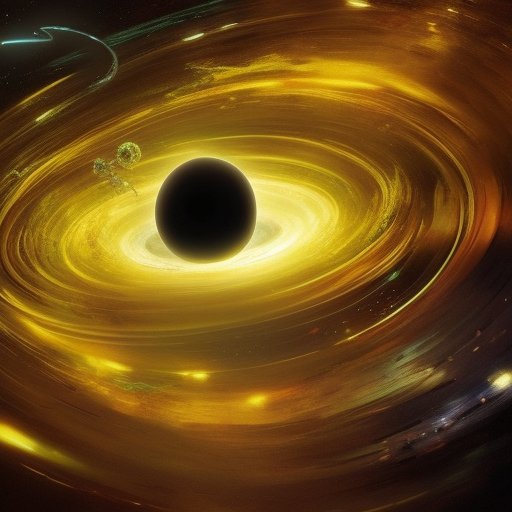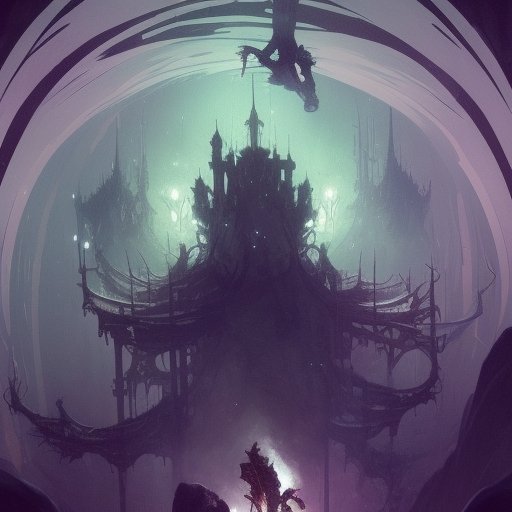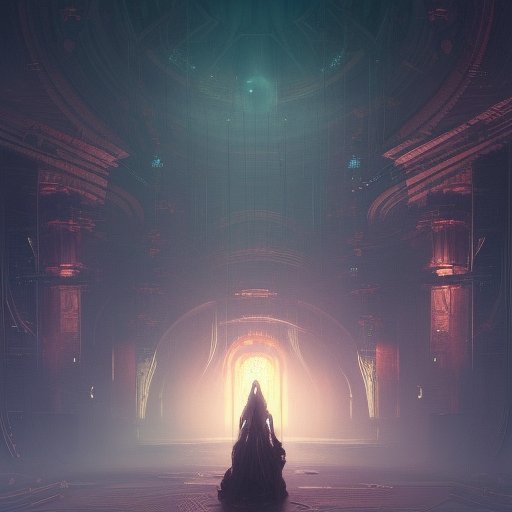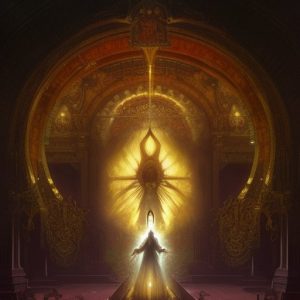
In this article, we will explore the notion of a supreme being and its origins. From the mythological tales of ancient cultures to the organized religions of today, we will examine the historical and scientific explanations behind religious beliefs. With a focus on the social and psychological impacts of religion, we will delve into the positive and negative effects of the idea of a higher power. Ultimately, we will discuss the implications of a world without the illusory concept of God.
I. Introduction
Hold onto your space helmets, my dear readers, because we’re about to embark on a journey to explore the biggest illusion of all – the concept of a Supreme Being. For thousands of years, humanity has turned to religions and faiths to find answers to life’s biggest questions. Countless gods and goddesses have been invented, worshipped, and even fought over. But what if I told you that there is no such thing as a deity? That, in fact, we humans create gods in our minds to fill the gaps in our understanding of the universe?
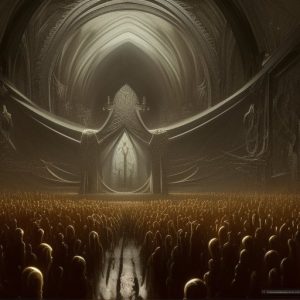
It’s a hard pill to swallow, I know. But before you dismiss this idea as mere blasphemy, let’s take a closer look at how religious beliefs have changed throughout history. From ancient Greece to modern-day cults, the gods we worship have always been shaped by our surroundings, beliefs, and cultural norms. They were never “real” in the way we understand reality today.
In our current age of accelerated scientific progress and astronomical discoveries, the idea of a deity controlling our world seems increasingly outdated. We have explanations for everything from the formation of planets to the mystery of human consciousness. Even so-called miracles can be explained by natural phenomena or psychology. We no longer need gods to explain the unknown.
But what is the harm in believing in something greater than ourselves, you may ask? After all, religion has brought us comfort, community, and a sense of purpose. Well, my dear readers, although the intentions might be noble, the repercussions can be dangerous. Wars have been waged in the name of religion, innocent lives lost, and progress hindered. Critical thinking is sacrificed in favor of blind faith, and fear is often used to control the masses.
So, buckle up, dear readers, as we set out to explore how the concept of God has evolved, how science has debunked the notion of a higher power, and the implications of living in a world where there is no divine force controlling our fate. Open your minds, question everything, and let’s embark on an adventure that will make us question everything we thought we knew.
II. Historical Perspectives
Once upon a time, long before we knew anything about science or technology, humans looked to the sky and saw a vast, inexplicable expanse. They felt small and powerless in the face of such grandeur. It didn’t take long for these early humans to start inventing gods to explain this unknown world. Ancient civilizations, from the Sumerians to the Egyptians, had their own pantheon of deities, each with their own stories and powers.

As humans evolved, so did their religious beliefs. Throughout history, religions have come and gone, rising and falling to the pressures of changing times. The Greeks and Romans worshipped gods and goddesses with human-like qualities, each one representing a different aspect of life. Christianity emerged in the ancient world and continues to be one of the most influential religions in the world today. Islam, Buddhism, and Hinduism are among the other major religions that have shaped human culture.
As early humans formed societies and communities, religion became a way of unifying people under a shared belief system. Religious practices, including rituals, sacrifices, and pilgrimages, all helped bring people together and form a sense of community. But religion has been used as a way to control, as well. Powerful leaders often used religion to solidify their power and impose their will on the masses.
As society changed and progressed, so did religious beliefs. The Enlightenment and the rise of science brought new challenges to traditional beliefs. The idea of reason and rationality threatened the notion of a divine being controlling our world. Some people began to reject religion altogether, while others clung even harder to their beliefs.
Despite this, the evolution of religion continues. New religions emerge and old ones adapt to the changing times. But one thing remains constant – religion will always be a part of human history, shaping our cultures, our beliefs, and our understanding of the world around us.
III. Scientific Explanations
Let’s dive into the science of religion, dear readers. Our brains have always been wired to spot patterns in the world around us, and to make predictions based on those patterns. It’s how we’ve managed to survive and evolve as a species. However, sometimes our brains see patterns where there aren’t any. This is what psychologists call ‘patternicity,’ and it’s the reason why we see faces in clouds, conspiracy theories in world events, and gods in lightning.

Moreover, our brains are also wired for agency detection, meaning we automatically assume that any event we witness is caused by an intentional agent. This instinctive response is one of the things that has helped us survive as hunter-gatherers, but it also means we are prone to seeing purpose where there is none.
Neurotheologists – a relatively new branch of science – study the relationship between the brain, religion, and spirituality. One of the things they’ve discovered is that religious experiences trigger the same regions of the brain as other pleasurable experiences such as sex, music, and drugs. Furthermore, prayer and meditation have been shown to reduce stress and pain, leading to the release of endorphins, the brain’s natural feel-good chemicals.
Our collective obsession with religion may also be partly influenced by our biology. Two innate traits that separate us from most other species on this planet are a deep sense of morality and a capacity for abstract thinking. It’s possible that the invention of gods was a natural byproduct of these traits, as early humans attempted to create order and meaning in a seemingly chaotic world.
IV. Social and Psychological Impacts
Socially and psychologically, religion has a significant impact on our lives. Belonging to a religious community can provide a sense of purpose, identity, and belonging. The rituals and practices associated with religion can bring comfort and structure to our daily lives. However, the same beliefs that bring people together can also lead to divisiveness and conflict between different religions or even within the same faith.

On an individual level, religious beliefs can have both positive and negative effects. In times of crisis, the belief in a higher power can be a source of comfort and hope. However, extreme religious beliefs can also lead to guilt, shame, and anxiety, especially when certain behaviors are seen as sinful or immoral.
Religious beliefs can also influence political ideologies, social attitudes, and morality. This can lead to positive changes, such as advocating for environmental protection or social justice, but can also result in less progressive attitudes towards issues like sexuality, gender, and reproductive health.
Furthermore, religion has been used as a tool of oppression throughout history, used to justify everything from slavery to genocide. It can sometimes be used by those in power to control individuals or groups, instilling a sense of fear and limiting their freedom of thought and action.
V. Conclusions
As we zoom out of this celestial discussion, it’s essential to acknowledge that living in a world bereft of the notion of a higher power would have tremendous implications. The illusions of certainty, morality, and purpose that religion provides would vanish, challenging humanity to find new ways of making meaning and finding fulfillment.
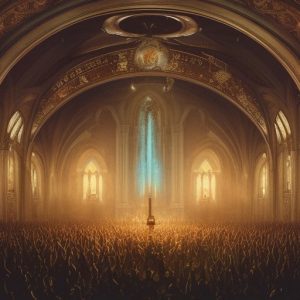
The absence of God would also call for increased responsibility for our actions and avoidance of dogmatic thinking. Instead of resigning to destiny, we’d have to embrace the uncertainty of life, which beckons us to chart our course actively. The inescapable reality of death would force us to cherish every moment we have and to make the most of it.
Nevertheless, as the veil of religious dogma dissipates, we must be careful not to plunge ourselves into nihilism or moral relativism. As subjective moral codes, ethics, and norms differ from society to society, we must evolve new, universally agreed-upon standards rooted in fact, logic, and empathy.
In the end, absence of gods in our universe would call us to be our myth-makers and creators of meaning, charged with the task of shaping our destinies and advancing the collective good. The obstacles would be daunting, and the challenges immense, but it would be a small price to pay for the significant gains of intellectual freedom, personal responsibility, and social progress that living in a world without God would bring.
So, let us embrace this brave new world, humbled by the vastness and mystery of the universe, but confident in our abilities to find our place in it. God or not, our destiny is in our hands.
